China’s risky path to riches
Xi Jinping’s ‘New Era’ policy is a high-stakes revolution that is triggering alarms.
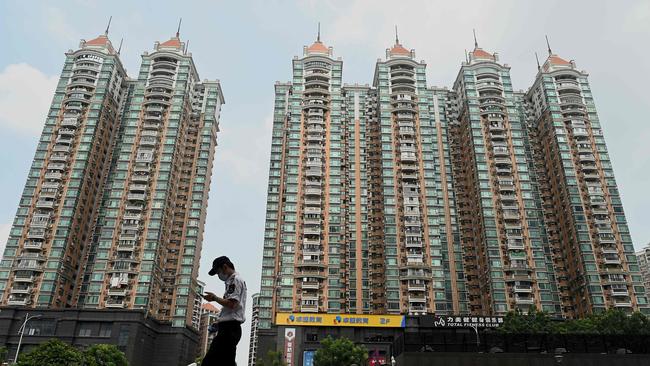
China’s relentless leader Xi Jinping hates the idea of braking, let alone using reverse gear. So in the face of fierce economic headwinds, he is stepping on the gas.
The Communist Party he heads and personifies is in an exultant mood as it enters its second century.
Xi no longer feels any strong compulsion to explain himself to an outside world which he believes to be adapting itself rapidly to his party’s strength and vision.
Thus there’s no need for him to fly to the eco-summit opening this weekend in Glasgow. No need for China to focus any more on adapting to the rest of the world.
AUKUS, the Quad, nothing that’s happening outside China is now causing Xi to wake up nights in the well-secured leaders’ compound of Zhongnanhai.
Xi said recently: “In today’s world, if you want to say which political party, which country, and which nation can be confident, then the Communist Party of China, the People’s Republic of China, and the Chinese nation have the most reason to be confident!”
What matters most now is that China follows Xi’s clear directions for a glorious socialist future, especially as he is enlisting the party’s full powers to pursue his boldest crusade yet – grappling the “animal spirits” of successful Chinese capitalism into submission to his form of socialism where “public ownership is the mainstay”.
Danger is lurking here, however. Restructuring the economy risks slashing the value of the real-estate investments on which the middle class has based its families’ futures, and risks the jobs of Chinese battlers. Xi has an answer for that, as for everything – or believes he does. His new wave of propaganda is telling his countrymen that while the economy may be slowing overall, his “common prosperity” campaign – reviving a Mao Zedong 1950s slogan – will in time deliver ordinary folk with more rewards.
The messaging indicates this will be achieved by redistributing wealth from the filthy rich who were lionised in Deng Xiaoping’s greedy “Old Era” of “to get rich is glorious”, even though the core source of unequal access to everything in China is the privileging of the unaccountable party and its elite circles. China’s wealth gap is about the same as the USA’s.
Xi says he wants to build “olive-shaped” prosperity, with the middle class expanding into the majority. He says: “We have a complete solution to the problem of poverty, but we still have to explore … how to get rich.” And he wants to “deal properly with the relationship between efficiency and fairness” while avoiding “the trap of welfarism”.
In his New Era, Xi’s “dual circulation” economy elevates domestic consumption alongside a business sector reoriented towards China itself, while the secondary “circulation” maintains exports and some imports. The aim is that the economy becomes less dependent on others, while others deepen their dependence on China.
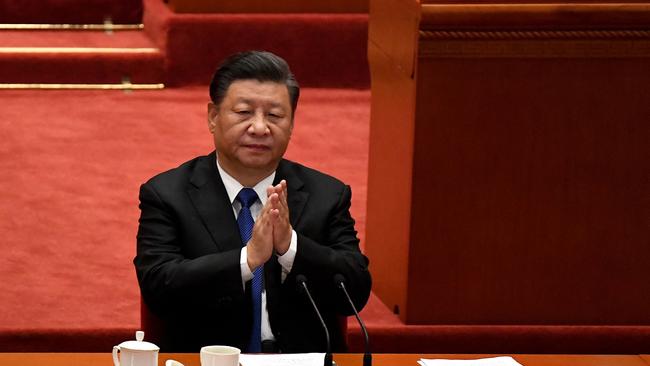
Xi believes now is the hour to complete his “Chinese dream” – barring the annexation of Taiwan, which institutional prudence continues to leave on hold – because the time is right, because of the fractured state of the world, because his party is probably at peak power.
The US is viewed as a busted flush, underlined by its Covid failings and the Capitol riot. When a few weeks ago US climate envoy John Kerry visited China, he was granted only video meetings with senior officials – while Foreign Minister Wang Yi had earlier met a Taliban delegation in person.
And Beijing believes its scores of Belt and Road partners, which it has loaned more than $1 trillion over the past 20 years, outweigh the allies of Washington. They increasingly do so in UN voting.
An undistracted Xi is thus pressing on intensely. A celebrated WeChat post last month by veteran media leftist Li Guangman, republished by all major official media, described the excitable mood: “Each of us can feel that a profound social change has begun.” Li wrote: “A revolution is taking place in the economic, financial, cultural and political fields. This profound change is also a return to the party’s initial aspirations – to the essence of socialism. It will wash away all the dust: capital markets will no longer be a paradise for capitalists to get rich overnight, and cultural markets will no longer be a paradise for ‘sissy’ stars,” being replaced by a “lively, healthy, masculine, tough and people-oriented culture”.
Li conveniently overlooked how after Mao Zedong’s death, it was China’s business pioneers who created the building blocks for China’s prosperity and power. Now Xi is bringing that sector to heel.
His initial blitzkrieg as leader was to subjugate the political, military and security establishments by accusing many senior cadres of the entwined sins of corruption and disloyalty, replacing them with successors who owe full fealty to him personally.
The red-letter events in Xi’s diary for the next year are naturally, in this mood, dominated by the domestic. His aim is to ensure that at the next five-yearly National Party Congress in a year’s time, he will be re-elected as general secretary with fulsome acclaim.
With no clear successor in sight, that will ensure that according to precedent – which requires a successor to be schooled for at least one five-year term – Xi will remain in power until 2032, when he will be 79 – Joe Biden’s age next month. Then, if he can stay fit, further terms beckon.
Before that crucial congress, he must steer two important events. The first is the party’s 6th Plenum, the sixth meeting of the 370-person Central Committee since the last National Party Congress. This takes place from November 8-11.
It will be a meeting that Xi relishes, since it will focus on the three areas that most engross him personally: ideology, party history, and education. It will elevate Xi’s own role as it recasts the party’s history to fit Xi’s framework as a modernising Mao Zedong.
Leading Australian analytical firm China Policy says about the imminent plenum: “The party-state engages in constant self-affirmation, the main plank being its powerful, if partisan, version of history. National leaders invoke famous mandates – in Xi’s case, ‘rejuvenating the Chinese nation’ – assuring them of a lasting legacy.”
The second floor of the vast new party museum in Beijing, constructed at Xi’s behest, encompasses the eras of Deng Xiaoping, Jiang Zemin and Hu Jintao. The third floor is devoted to Xi’s New Era.
China Policy says there is a sharp difference between being enshrined in canonical texts laying down the history of the party, and mention in everyday documents: “Canonical history is formidable in confirming political authority, a place on China’s Mount Rushmore. A rewrite of the reform era’s narrative by Xi’s consiglieri would, in principle, break with the Deng era narrative. But would it switch back to class struggle, Mao’s core task? Many fear so.”
The plenum will probably drive more aggressive measures at China’s top universities, following a damning recent report after political inspectors were dispatched to investigate: “Ideological and political education is relatively weak. There is insufficient implementation of the party line in the new era.”
The speeches, statements and propaganda that tumble around at, and after, the plenum will fill China’s media space until the following big event. That is the potentially fraught affair of the Winter Olympics from February 4-20, in Beijing and the surrounding, hopefully snow-laden, countryside of Hebei province.
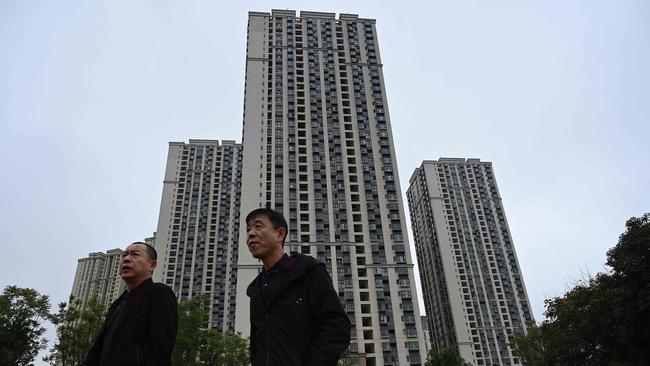
Covid has handily provided cover for any potential Olympic awkwardness over Beijing’s behaviour in Xinjiang, Tibet or Hong Kong. Instant lockdowns are imposed to counter any case. All people arriving in China, whether foreigners or citizens, must quarantine for three weeks. And visas are extremely difficult for temporary visitors to obtain.
So the potentially awkward scrutiny provided by visiting journalists will be avoided, leaving pressure on sponsors over human rights as the chief potential challenge for Beijing, while carefully curated local crowds will pack arenas, arming licensed online influencers to point out handily the contrast with Tokyo’s empty summer Olympics stands.
The government will be tempted to retain its firm Covid constraints after the Olympics, perhaps even through to the Party Congress. China has been in a version of lockdown anyway, since well before Covid – since Xi started tightening the screws of unprecedented scrutiny and control.
The 2017 Party Congress provided Xi with the launch-pad for his New Era, scripted by his three-hour speech in which he concluded that “history looks kindly on those with resolve, and with plenty of guts; it won’t wait for those shy of a challenge.” Few would accuse him today of such lassitude.
That congress was being held as excitement peaked around China’s blockbuster movie, Wolf Warrior 2, a Rambo-style film set largely in Africa, whose Han-dynasty slogan said: “Whoever offends China will be punished, no matter how far they are.”
A new generation of diplomats at the Ministry of Foreign Affairs picked up on that zeitgeist and transformed China’s international stance almost overnight. Conventional niceties have been binned, replaced by like it, or lump it.
Australia, for its part, was convicted of 14 grievous sins, helpfully listed by a Chinese diplomat. Thus has Xi’s New Era transformed China’s dealings with the world.
The Pacific Islands, too, are caught up in this global net. Last week, nine Pacific government leaders and foreign ministers, and Henry Puna, head of the Pacific Islands Forum administration, joined Wang Yi, who gushed “we’re bosom friends”, for a virtual meeting that inaugurated several permanent co-operative arrangements.
They unanimously agreed to “thank China for its long-term selfless assistance and support, extend congratulations on the Communist Party’s centenary, reiterate the firm upholding of the one-China policy” – although each country could devise, if it chose, its own policy concerning Taiwan – “and support China in safeguarding its core interests”.
The 2022 congress looms large as a further watershed for China. The 2300 delegates are destined to hail the shift to Xi as the embodiment of the party, rivalling only Mao as its greatest ever leader.
But outside Beijing’s Great Hall of the People, the tinkling of alarm bells may just be audible, sounding concerns about the uncertainties around Xi’s ultimate succession, about the sustainability of the demands for constant struggling against enemies, some real and some confected, within and without China, and about Xi’s capacity to steer the economy productively.
Xi, otherwise preoccupied, largely left the economy’s settings intact during his first eight years as party general secretary. But he has made it the target of his new blitzkrieg, rapidly introducing policies reining in access to foreign capital and limiting the autonomy of private companies, including the tech giants such as Tencent and Alibaba, and firms in entertainment, property and education.
Championing “engagement” with this China has become considerably more challenging as a result, since this tended to spring from business connections and opportunities. Overseas business leaders used to consult the Hurun Rich List for candidates for their China advisory boards, and to network hectically, having learned that guanxi (relationships) trumped all troubles. Today, Chinese business elites are hiding, downscaling their lifestyles, and worrying that a hint of foreign involvement might trip up a project’s compliance approval.
Anxious manufacturers and traders at China’s famous Canton Fair inevitably suffered last week from the lack of foreign businesspeople. Even learning about what’s happening in China’s business and government worlds is becoming harder, with the country’s most trusted financial news organisation, Caixin, being removed by the Cyberspace Administration from the official list of news outlets allowed to be republished.
As the business climate cools, leading China-focused economic analysts Gavekal Dragonomics said that China’s real GDP growth slumped to 4.9 per cent in the third quarter of 2021, while growth from the previous quarter all but stalled. Its gross debt level, at 290 per cent of GDP, has doubled since 2008.
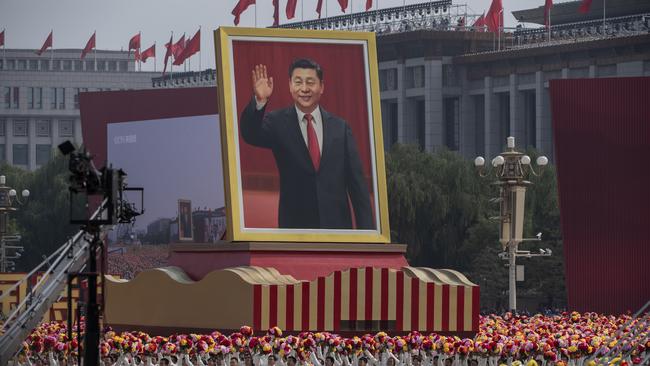
“The slowdown can be attributed both to supply constraints and to soft demand,” Gavekal Dragonomics noted. On the supply side, electricity shortages helped to suppress industrial output. On the demand side, the funding squeeze on developers weighed on construction activity, dampening demand for steel, cement and other materials.
It’s not only the corporate giants that are feeling the chill. Gavekal Dragonomics said small businesses too “are having a rough 2021”, due principally to “the ripple effects from the government’s zero-tolerance policy towards Covid and its tightening of credit and real-estate policies.”
Eighty per cent of household wealth is in real estate, with 90 per cent of households owning their own homes, and the sector – including its hugely in-hock giant, Evergrande – is in crisis, its debt totalling more than $6 trillion. Home prices are falling for the first time in six years, and sales declined by 17 per cent last month.
Many families own more than one property, having acquired them ultra-cheaply when in the 1990s state businesses ceased providing cradle to grave danwei welfare for staff. “Houses are for living in, not for speculating,” says Xi.
So a controversial property tax has been trialled in Shanghai and Chongqing, and the pilot will extend to further cities. Sinocism publisher Bill Bishop believes imposing such a tax nationwide is politically impossible, since “too many officials and their family members have properties they can’t explain based on their official incomes, and can’t afford property tax on, based on their official incomes, and levying a property tax will anger everyone who stretched to buy a home.” But Xi doesn’t shy from challenges.
Demography presents an even tougher one, with the working population already declining. A Communist Youth League survey has found that almost half of urban young women and almost a quarter of young men don’t plan to marry. Many worry about the costs of having children, and say they can’t count on the government to support them in later years or to cover healthcare. Surveys anticipate the total population falling rapidly, one by Xian’s Jiaotong University warning it may even halve by 2050.
Beijing-based Helen Gao has written in Foreign Policy that “the party has reasons to worry” that its determination to turn young Chinese into good producers is being defied. “Many of them are downgrading lifestyle choices around diet, travel, and more. They fill social media with talks of the futility of endeavouring and the hollowness of desire.” She says of dispirited young Chinese, who say they are “lying flat”, that in a country that allows only one centre of power, “ambition and independence can only go so far”.
Xi has underlined who holds that power, as he trumpeted his accelerated ambitions for the party: “We should seize the commanding heights of future development.”
The throttle stays down.
Rowan Callick, an Industry Fellow with Griffith University’s Asia Institute, has written a new paper for the Centre for Independent Studies: Xi Dreams of 100 More Glorious Years for the Party: Might China Awake?


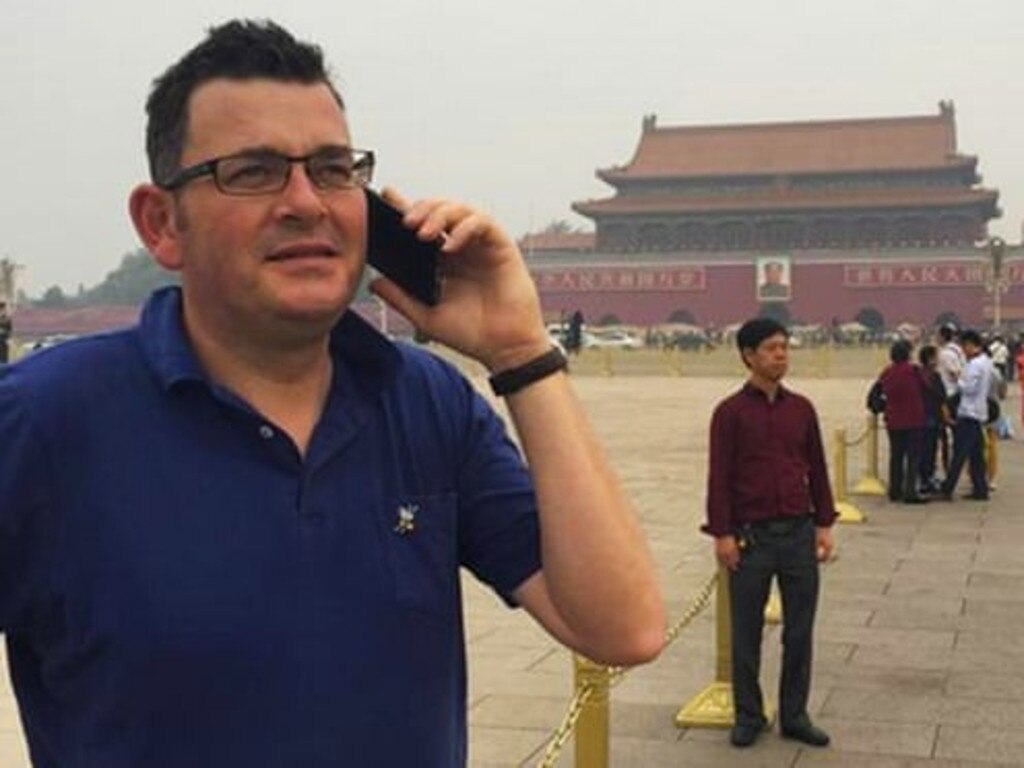
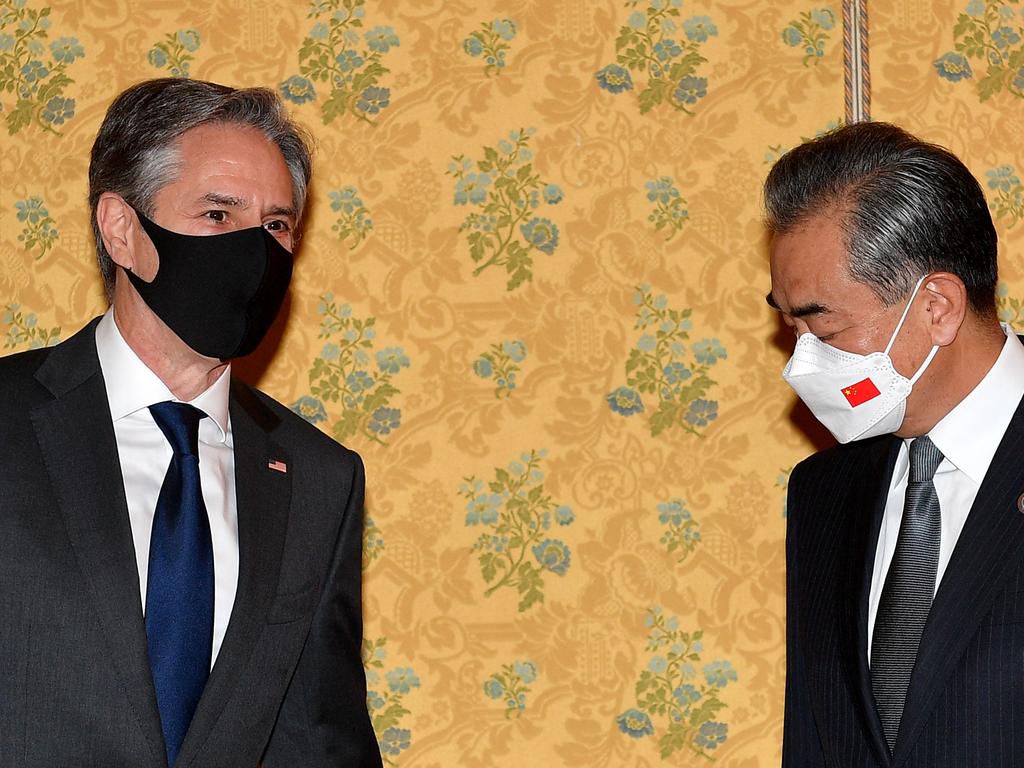
To join the conversation, please log in. Don't have an account? Register
Join the conversation, you are commenting as Logout